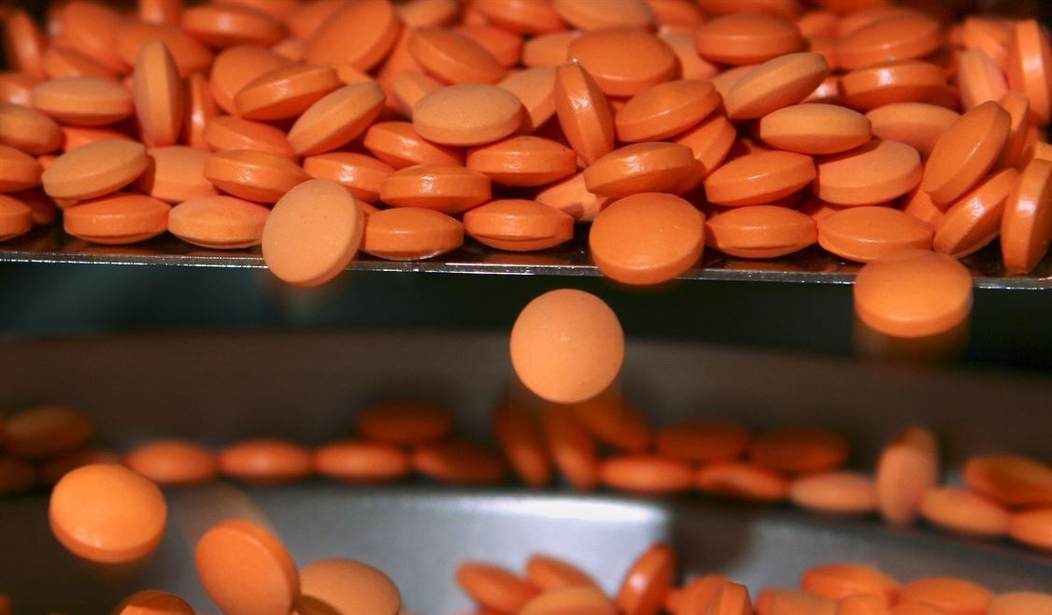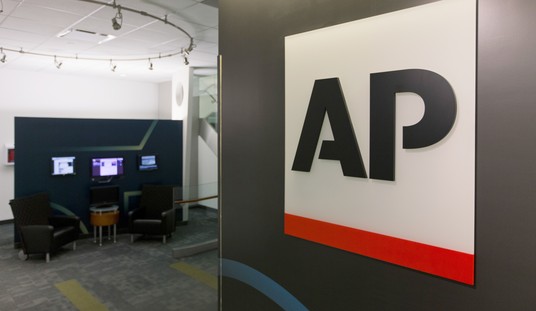I’ve been outside of the United States — blissfully without a television — for so long that I’ve forgotten how thoroughly saturated the airwaves are with pharmaceutical advertising.
Because I was a weird kid, I remember watching Bill O’Reilly when I was in high school in the early aughts, during which every other commercial, it seemed, was selling drugs for prostate issues or erectile dysfunction.
Related: Pfizer’s Moral Rot on Display in Cringe Super Bowl Ad
The euphemism for such drug peddling is called “direct-to-consumer drug advertising,” and it skyrocketed during that period.
Via Journal of the American Medical Association (emphasis added):
Direct-to-consumer drug advertising increased by nearly 5-fold from 1997 to 2016, with 663 000 television commercials reported in 2016. Television advertisements account for roughly two-thirds of total direct-to-consumer advertising spending. Direct-to-consumer advertising is associated with use of higher-cost drugs over generics and less expensive alternatives.
Some estimates suggest a 500% percent return on investment for these spots — not a bad margin, any businessman will tell you.
And those figures don’t include sponsorship deals on top of all the free advertising disguised as news.
Brought to you by Pfizer pic.twitter.com/ftrcrnrMGL
— 17Kelly71 (@17Kelly71) December 20, 2024
So it’s no wonder the industry is a bit antsy in their pantsies about the prospect of doing away with them by executive order, which RFK Jr. floated when he was still running as an independent in 2024 before dropping out and endorsing Trump.
We are one of only two countries in the world that allow pharmaceutical companies to advertise directly to consumers on television. Not surprisingly, Americans consume more pharmaceutical products than anyone else on the planet.
— Robert F. Kennedy Jr (@RobertKennedyJr) May 22, 2024
As I told @JoePolish, on my first day in office I… pic.twitter.com/jsvDhzq7yA
Via Fierce Pharma (emphasis added):
With Robert F. Kennedy Jr. slated to take the top spot at the U.S. Department of Health and Human Services (HHS) under President-elect Donald Trump, some in the biopharma industry are concerned about his tenure’s possible impacts on companies’ direct-to-consumer outreach.
RFK Jr. has previously expressed a desire to put a stop to DTC pharma ads in the U.S.—which is one of only two countries in the world, along with New Zealand, where prescription drugs can be directly advertised to consumers…
In a report Sunday, research firm Intron Health suggested that such a ban represents a major risk of RFK Jr.’s (still to-be-confirmed) HHS leadership for the biopharma industry.
“Whilst we have a relatively benign view of RFK’s impact on the Pharma industry, one thing that does worry us is the potential for the US government to ban DTC advertising of drugs,” Intron wrote, adding, “We see this as the biggest imminent threat from RFK and the new Trump administration.”*
The analysts noted that because the return on investment for DTC drug ads is quite high—with “estimates ranging as high as 100%-500%, depending on the drug”—pharmas will “almost certainly” see their drug sales take a hit from a DTC ban, even as they save money on marketing spending.
*A ban on DTC ads should absolutely not be the “biggest imminent threat” to the industry that RFK and Trump pose; if this turns out to be true — and we’ll know here shortly — in and of itself it would be a damning indictment of the kid-gloves with which the new administration treated the criminals in Big Pharma and Public Health™.
Time will tell, so I’ll hold out judgment until they’ve had time to get settled into office and get their agenda moving.
Of course, banning direct-to-consumer advertising isn’t exactly in line with laissez-faire free market ideology — but neither are the massive public subsidies the industry loots from the treasury because it buys all the right politicians from both sides of the aisle so that its incredibly expensive drugs are often publicly financed in the R&D stage and the profits then privatized, which by some definitions is textbook fascism.
Related: Cable News Is Riddled With War Profiteers
I’d rather watch the industry deprived of its fascistic, parasitical entanglement with the state and die of its own wickedness and inefficacy to be reborn into something that actually delivers what it promises — healthcare — but something tells me that’s not in the cards anytime soon.
So, until then, no more selling scam drugs on corporate state media. Why shouldn’t all that government cash come with strings attached?










